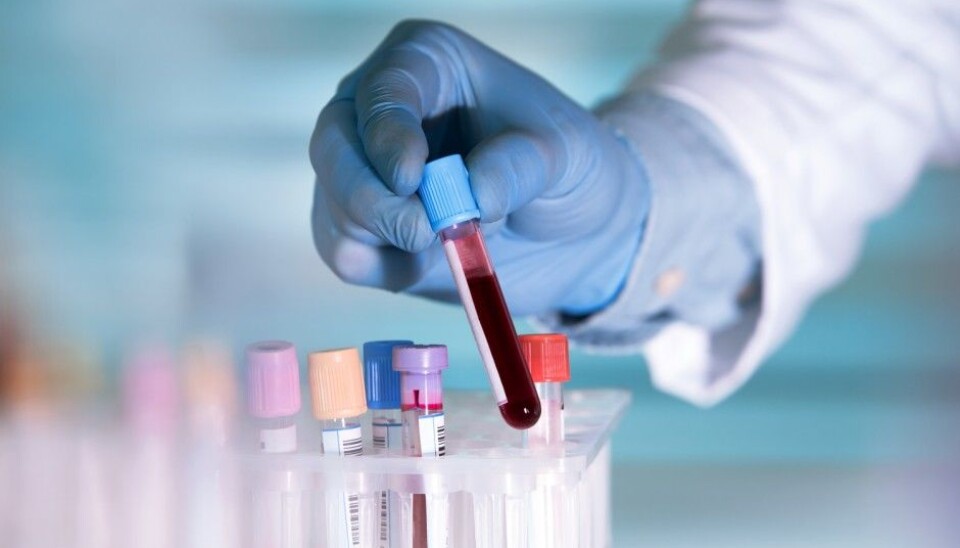
Heart health measured with a simple blood test
Researchers have discovered a new indicator that measures the risk of future heart disease. High levels of this substance, called troponin, can identify people at risk.
It’s long been the holy grail of cardiac researchers: a simple blood test that can predict who is at greatest risk of developing heart disease. Cholesterol and C-reactive protein levels have long been used as proxies for this ideal indicator.
But two new studies document how individuals with heart disease had high levels of a protein, troponin, in their blood long before they had symptoms, compared to individuals who did not have heart disease.
The studies also show that an increase of troponin over time indicates an increase in the risk of heart disease.
A sign of disease
Doctors have long tested the blood levels of troponin in people who come to a hospital with chest pain to determine if they are having a heart attack.

"This is a well-known marker for heart disease," says Magnus Nakrem Lyngbakken, a researcher at the University of Oslo (UiO) and Ahus, the Akershus University Hospital.
However, levels of this protein also vary in healthy people in the population.
Tested 9000 Norwegians
Researchers at UiO and Ahus relied on blood samples from several studies conducted by the Nord-Trøndelag Health Study. HUNT, as it is called after its Norwegian acronym, is one of the largest population-based health surveys ever conducted. The researchers used information from HUNT to look for early signs heart disease risk, using methods that are different than those used in hospital clinics today.
None of the participants had symptoms of heart disease when blood samples were collected during HUNT2, which was carried out from 1995-1997, and HUNT3, which was carried out from 2006-2008.
Frozen blood samples from over 9000 participants were thawed and tested for troponin.
Participants' blood samples were divided into three groups, based on whether they had low, moderate or high values of the protein.
330 died of heart disease
The researchers then compared these findings with records of hospitalizations and deaths until 2010. By that time, roughly 8 per cent of the participants had had a heart attack or heart failure.
Of the participants, 330 had died from heart disease, 270 had had a heart attack, and 135 had been hospitalized with heart failure.
Among these three groups, many more had high troponin levels as early as 14 years previous to their diagnosed illness compared to individuals who did not develop heart disease.
None of the participants were known to have symptoms of heart disease when the blood tests were first taken.
The common denominator
Troponin appears to be a common denominator for various heart disease risk factors, such as high blood pressure and high cholesterol.
“It is a protein that is likely created by low grade heart failure. But we still do not know why people with heart disease have a higher levels of the protein many years before there is evidence of heart disease, compared to those without heart disease, "said Lyngbakken.
Better than measuring cholesterol
The researchers found that troponin levels are more likely to predict who is at risk of heart disease than more familiar measurements such as C-reactive protein.
Troponin also appears to be a better predictor of future heart disease than high levels of dangerous cholesterol, according to the study.
Nevertheless, age, diabetes and high blood pressure that require medical treatment are even stronger predictors of future heart disease than troponin levels.
Preventative treatment a goal
Currently, troponin levels can only be tested in hospitals.
But scientists hope that a test can be developed so your GP can determine who is most at risk of future heart disease.
"These people can then be offered preventive treatment," says Fjola Sigurdardottir, a PhD candidate at UiO and Ahus whose dissertation focuses on troponin and heart disease.
---------------------
Read this article in Norwegian at forskning.no
Scientific links
- F. Sigurdardottir et al.: Cardiac Troponin I Provides Superior Prognostic Information to C-Reactive Protein in the General Population: Data From the Nord-Trøndelag Health Study.Abstract AHA/ASA news event. 14 November 2017.
- M. Lyngbakken et al.: Temporal Changes in Cardiac Troponin I and Risk of Cardiovascular Events in the General Population: The Nord-Trøndelag Health Study. Abstract AHA/ASA news event. 14 November 2017.






























